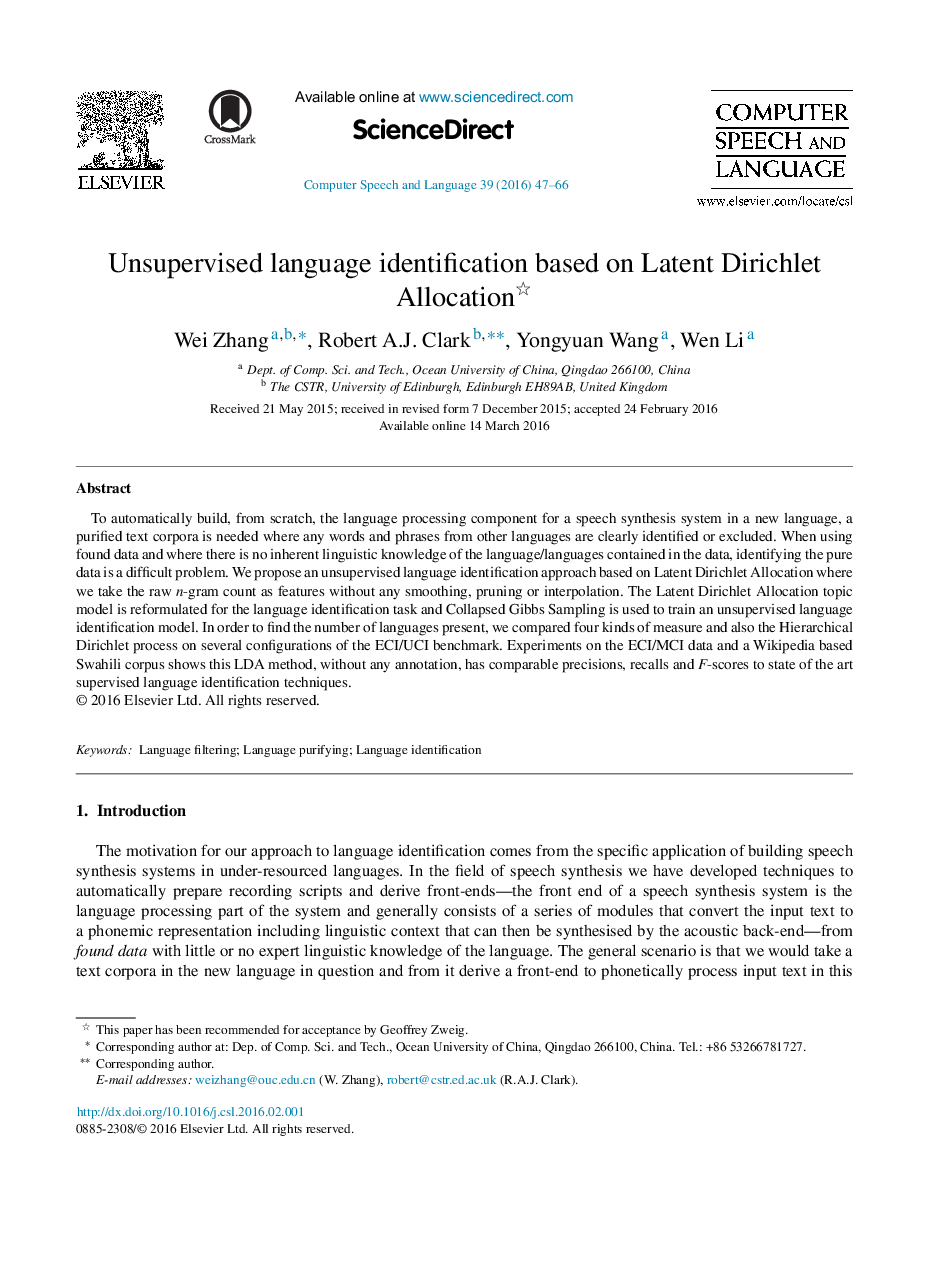| Article ID | Journal | Published Year | Pages | File Type |
|---|---|---|---|---|
| 558976 | Computer Speech & Language | 2016 | 20 Pages |
•An unsupervised language identification approach based on Latent Dirichlet Allocation with high precisions, recalls and F scores.•The raw n-gram count as features without any smoothing, pruning or interpolation.•Purifies main language with unknown number of other languages in high precision.•Find out the nearest measure related to the minimum of topic number.
To automatically build, from scratch, the language processing component for a speech synthesis system in a new language, a purified text corpora is needed where any words and phrases from other languages are clearly identified or excluded. When using found data and where there is no inherent linguistic knowledge of the language/languages contained in the data, identifying the pure data is a difficult problem. We propose an unsupervised language identification approach based on Latent Dirichlet Allocation where we take the raw n-gram count as features without any smoothing, pruning or interpolation. The Latent Dirichlet Allocation topic model is reformulated for the language identification task and Collapsed Gibbs Sampling is used to train an unsupervised language identification model. In order to find the number of languages present, we compared four kinds of measure and also the Hierarchical Dirichlet process on several configurations of the ECI/UCI benchmark. Experiments on the ECI/MCI data and a Wikipedia based Swahili corpus shows this LDA method, without any annotation, has comparable precisions, recalls and F-scores to state of the art supervised language identification techniques.
Graphical abstract On the left generative model, we propose an unsupervised language identification approach based on Latent Dirichlet Allocation (LDA-LI) where we take the raw n-gram count as features without any smoothing, pruning or interpolation.Figure optionsDownload full-size imageDownload as PowerPoint slideAs the right experiments on ECI/MCI benchmark, the LDA-LI has comparable precisions, recalls and F scores to state of the art supervised language identification techniques (langID.py and Guess_language, etc.).
